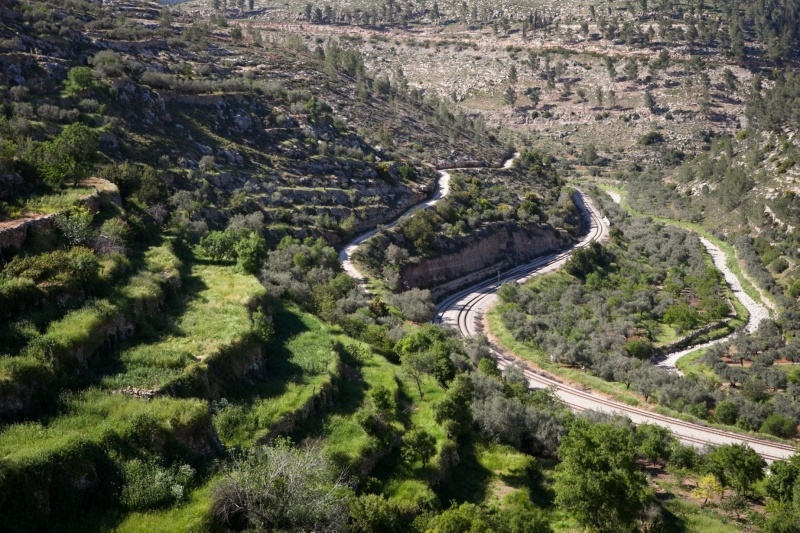The man-made terraces in the Judean Hills surrounding Jerusalem are at the center of a fierce debate after a new study claimed the agricultural features were mainly built by Arab workers in the past 400 years. Critics dismiss the study and say it merely reflects the most recent building work.
The UNESCO-protected village of Battir, south of Jerusalem, features one of the most famous terraces and became the subject of lengthy legal arguments when the Defense Ministry’s plan to place the West Bank separation barrier through it threatened to ruin postcard sales. The terraces around Ein Karem, the neighborhood of Ramot and other locations were also used as examples arguing against urban development. In several locations in the Jerusalem Forest and Nahal Refa’im, the Jewish National Fund and Jerusalem Development Authority have embarked on projects designed to refurbish old terraces, as well as building new ones.
The power of a man-made terrace lies in its simplicity: It is a series of steps, with the earth held back by a wall of stones to enable tilling the mountainside. Its simplicity actually makes it difficult to date a terrace. In contrast to ancient structures, terraces are not usually part of a wider complex, which might include other artifacts that could be dated.
To add a further level of complexity, the terraces we see nowadays are the result of a never-ending project of building, reconstruction and repairing – a process that has continued for many generations. Thus, even if artifacts are found nearby, it’s difficult to ascertain whether they belong to the time the terrace was originally constructed or to a later time when it was repaired.
To read the full article

Who really built Jerusalem's historic terraces?
A new study says that most of the agricultural terraces surrounding Jerusalem were built during the Ottoman era. But critics are taking steps to counter the findings.
By: Nir Hasson / haaretz
06/02/2016
